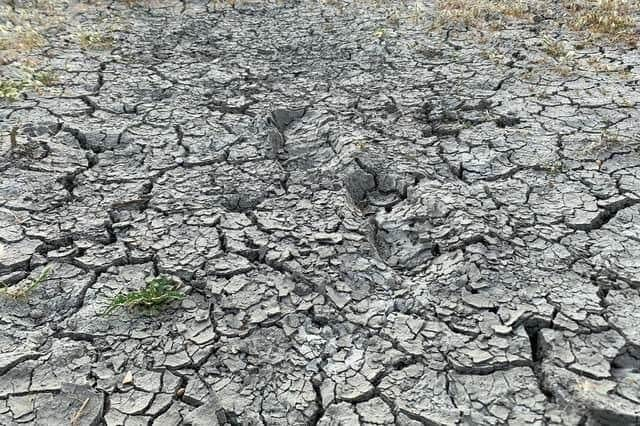Thames Water criticised for 'jaw-dropping' waste as hosepipe ban is activated in Aylesbury and beyond
and live on Freeview channel 276
The water provider which covers Aylesbury, large parts of the Thames Valley and London is facing greater scrutiny for its ‘eye-watering’ amount of daily waste.
Today (24 August), the hosepipe ban came into effect for Thames Water customers after an extended period of extreme heat and a lack of rainfall throughout the UK.
Advertisement
Hide AdAdvertisement
Hide AdThis rare British weather is affecting the water levels at the River Thames which are dwindling.


Using your hosepipe to wash your car or water your plants while the ban is active could lead to a £1,000 fine.
GMB Union believes that a person could leave their hosepipe on for 73 years and it still wouldn’t amount to the same unit wasted by Thames Water in 24 hours.
The trade union which has over 460,000 members in the UK has crunched numbers from Ofwat and Discover Water to reveal that it loses 635 million litres in leaks every single day.
Advertisement
Hide AdAdvertisement
Hide AdThames Water has conceded its consistent water leakage is unacceptable, but highlights that the supplier has met its reduction targets for the past three years.
A spokesperson for GMB said: “Last year Thames Water handed its directors more than £4 million, with the highest paid director trousering £1.5 million – up 67 per cent from the year before.
“GMB has long campaigned for water to be brought back into public hands.”
Andy Prendergast, GMB national secretary, said: “From today, 15 million people across the South East can no longer use their hosepipe.
Advertisement
Hide AdAdvertisement
Hide Ad“Meanwhile every single day, Thames Water wastes enough water to have a hosepipe on for more than 70 years.
“You could have had a hosepipe on constantly since before the Queen was on the throne and you still wouldn’t have used as much as Thames Water wastes in just 24 hours.
“Instead of spending money to fix the leaky infrastructure, they’re showering directors with eye-watering sums.
“It’s jaw-dropping incompetence and greed.
“Privatising water has been a disastrous failed experiment, it’s time to bring this essential natural resource back into public hands.”
Advertisement
Hide AdAdvertisement
Hide AdThames Water advises its leakage issues are tracked on its official website which can be viewed here.
It also addresses the steps the company is taking to address the problem.
A Thames Water spokesperson told The Bucks Herald: “We know it’s not acceptable to be losing so much precious water and we’re doing something about it. It’s not going to be quick, but we’re making progress and we’ve met our target for the last three years to reduce leaks by 10%. Our aim is to reduce our leakage by 20% between 2020 and 2025.
“Since the extreme heatwave we have seen the number of leaks at least double compared to previously – partly due to ground movement and partly due to the higher pressures we pumped at to meet demand which hit a 27 year high in some places.
Advertisement
Hide AdAdvertisement
Hide Ad“We have 160 repair teams working tirelessly to fix leaks with activity taking place 7 days a week and over 280 people working round the clock and mainly overnight to detect leaks not yet appearing at ground level. We are repairing over 1,100 leaks per week – whether they are visible or hidden below ground.
“We prioritise repair work to ensure we focus on the bigger leaks first and importantly those affecting service to customers.
“We also have an extensive capital programme to help us fix more leaks in the future. In the next 3 years we will spend over £55m installing dynamic pressure management helping to modulate pressure across our network for varying demands, helping reduce leakage. And in the next 3 years we will spend close to £200m on replacing water mains.”
